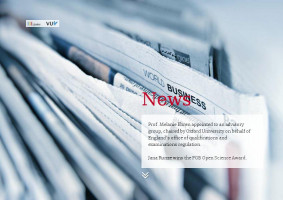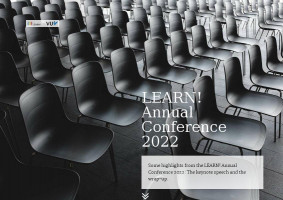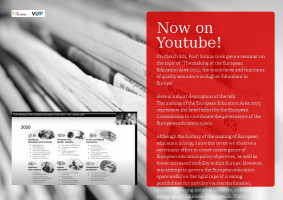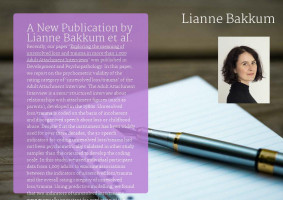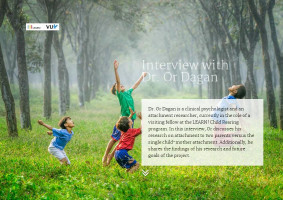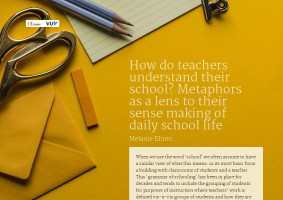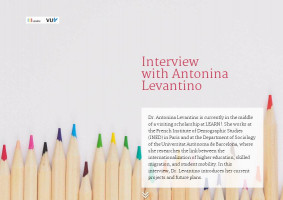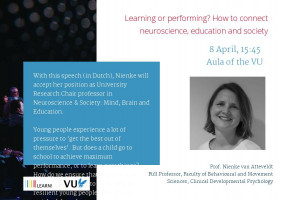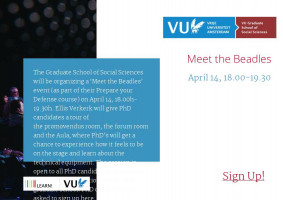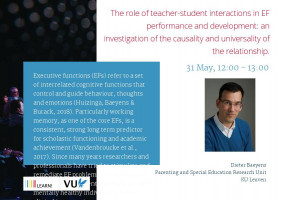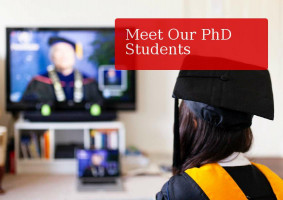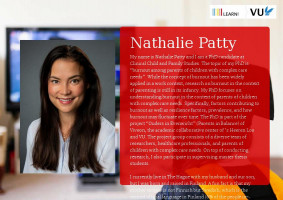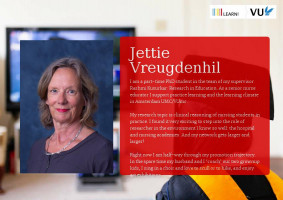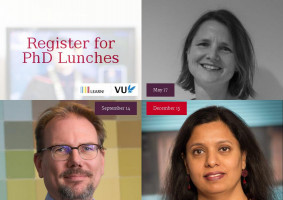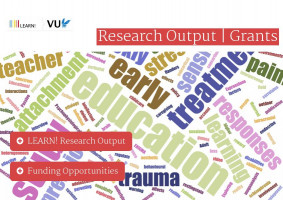Dr. Antonina Levantino is currently in the middle of a visiting scholarship at LEARN!. She works at the French Institute of Demographic Studies (INED) in Paris and at the Department of Sociology of the Universitat Autònoma de Barcelona, where she researches the link between the internationalization of higher education, skilled migration, and student mobility. In this interview, Dr. Levantino introduces her current projects and future plans.
_w420_h428_1.jpg)
Your research has mainly focused on the internalization of higher education, skilled migration, and student mobility. Could you please elaborate more on this line of research?
Yes, of course. I have been working specifically on the link between transnational higher education and the mobility of students and graduates. Transnational higher education refers to any teaching or learning activity in which students are based in a different country than the country where the institution providing the education is located. An example is an English university that has campuses in China or Malaysia and offers degrees in these countries so that people can obtain an English degree without going to England. In this sense, it is different from student mobility because, in this case, the educational services and programs are moving, and students can get a foreign degree without having to go abroad. Because of this, it has been argued that for countries that open their education market to foreign providers, transnational higher education could represent a way to convince students to stay in the country, constituting a potential solution for the “brain drain” problem. But the issue is very complex. What we see is that transnational higher education is increasingly important. However, we know very little about the effect of the mobility of university programs on the mobility of students and graduates because empirical evidence is scarce. This is why I have dedicated time and effort to research this. The results of my research so far show that transnational higher education does not seem to be a substitute for international student mobility.
Instead, we are seeing the emergence of a two-tier international higher education system where studying abroad is still considered more prestigious compared to studying “offshore” through transnational education. It follows that the two types of international education absorb different segments of students. I also found that being enrolled in transnational higher education favors the creation of ties with people from the country of the education provider and enables access to important information about that country. This might increase the desire to go abroad after graduation and make the realization of this desire easier. If we consider these results, transnational higher education is far from a solution to brain drain and might even increase it.
YOU WERE ALSO INVOLVED IN TONI VERGER’S WELL-KNOWN REFORMED PROJECT; AN INTERNATIONAL STUDY ON PERFORMANCE-BASED ACCOUNTABILITY. COULD YOU TELL US MORE ABOUT IT?
Yes, ofcourse. On the one hand, the REFORMED project analyzes how and why school autonomy with accountability reforms are being adopted and re-contextualized in different countries. On the other hand, the project explores policy enactment processes at the school level. This second objective has been based on data from a big survey conducted in several countries among school principals and teachers and interviews with school actors. I have been mostly involved in this second strand of research within the project. More specifically, I have been in charge of designing and coordinating the survey, and I am currently involved in the analysis of the survey data collected and in their triangulation with the qualitative information coming from the interviews. The aim is to explore, among other things, the determinants of the external accountability pressure experienced by school actors, the emergence of undesired behavioral effects (cheating, cream-skimming practices, etc.) and the strength of extrinsic rewards, which are more and more foreseen by accountability reforms, in motivating school actors.
Apart from that, within the framework of the project, I am also currently collaborating with a colleague to explore the link between school autonomy, external accountability, and innovation, specifically analyzing the Italian case.
ANYTHING ELSE YOU ARE WORKING ON?
Apart from what I already mentioned, I recently became one of the coordinators of the IMISCOE Standing Committee “Education and Social Inequality.” IMISCOE is the most important European network of researchers in the field of migration, integration, and diversity studies. So, within the Standing Committee, our current goal is to advance critical theoretical discussions on issues of social inequalities in education, transitions in education, the labor market, and the integration of refugees and asylum seekers into the education system.
WHAT ARE YOUR FUTURE PLANS?
I hope to have time to continue doing my research on transnational higher education and how it has been changing higher education and student mobility flows worldwide. Also, since last year, I have been a member of the Management Committee of the COST Action ENIS (European Network on International Student Mobility: Connecting Research and Practice) that will last for the coming five years. Within this project, we are investigating inequalities in access to international student mobility and the social and cultural integration of international students in the countries of destination. Finally, within the framework of the work of the IMISCOE Standing Committee, with the other coordinators, I will seek to strengthen the issues of discrimination and racism in formal and informal education.


